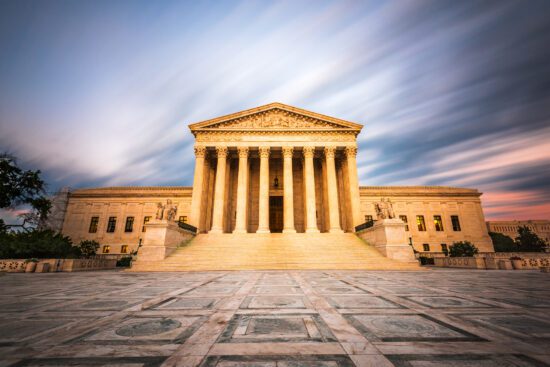Genesis 1 shows us that God created the world by working. After creating the world, God gave Adam and Eve the “Creation Mandate,” instructing Adam and Eve to be fruitful and multiply, fill the earth, and take dominion over it (Gen. 1:28). In this verse, God instituted work as a way for humans to care for creation and steward his gifts.
Unfortunately, ever since the Fall, the relationship between people and work has been cursed and broken. One of the ways this is evident is in our view of work. Sin has led many of us to see work only as a means of self-fulfillment and individualism instead of a way to serve others. In his book Every Good Endeavor, Tim Keller claims that this view of work “crushes people . . . and undermines society itself.”
As Keller points out, we must look to the Bible to reacquire a biblical view of work. Since Scripture discusses work often, I will focus on three of the major things the Bible says about work.
The Bible says work is part of God’s design for his creation
One common perspective today is that work is a necessary evil. Many people work simply to pay bills while waiting for the weekend, and they despise their jobs. There has been a big push to make life as easy as possible and avoid work. And though much of work is hard, cursed by humanity’s sin (Gen. 3), Keller argues that an avoidance view of work is self-destructive and harmful to society. To move away from an individualistic view of work, we must see how God’s Word demonstrates his good plan for work.
God’s extensive use of work throughout Genesis shows us that it is part of God’s design for creation. Throughout Genesis 1, God works to craft the universe and declares it “good,” indicating that it’s exactly as he desires. Since all of creation is a direct result of God’s work, we know work is an integral part of creation. Additionally, the Creation Mandate occurs before the Fall. Thus, the introduction of sin did not introduce work; instead, it has affected work with difficulty and fruitless labor. The mandate from God also shows that we are not created merely for leisure and time spent in idleness. Rather, humanity was made to work, cultivate, and create.
Remembering that work was given to us by God so that we could enrich his creation and reflect his nature is a critical part of renewing our minds and recovering a biblical view of work.
A pattern of work and rest is essential for our well-being
While God created us to work and take care of creation, he also showed that rest is necessary for us to flourish as humans. After working to create the world over six days, God rested on the seventh day (Gen. 2:1-3). Genesis 2:3 says, “God blessed the seventh day and made it holy, because on it God rested from all His work that He had done in Creation.” God sets the example by taking a rest day after creation, though, unlike us, he does not grow tired and weary (Is. 40:28). And in Exodus 20, he the Israelites to take a day of rest. In verses 8-11, God draws from his examples in creation and establishes the Sabbath as a day of total rest, dedicated to him.
While we were created to work, we still need time to rest, worship God, and trust in his provision. Resting can counter the tendency many of us have to tie our identities to our work. In a culture such as ours where productivity and busyness are often our ways of defining success, the scriptures continually remind us that we are finite and must rest. Even Christ in his earthly body slept (Mark 4:38). The rhythm of rest and work structures our life and keeps us between the extremes of laziness or idleness on the one hand and frenetic activity on the other. Most importantly, a set pattern of work and rest in our lives teaches us to rest in our God and his work on our behalf.
Work is a way to serve your community and spread the gospel
The Bible also commands us to use our work to serve others (Matt. 23:11). And Christians have been commanded to share the gospel and make disciples throughout the world (Matt. 28:19-20). God has called each of us into specific careers and paths, and our jobs are where we spend most of our time interacting with our community. This means, as Andy Mills has argued, that if we have a biblical view of work, we should be doing our work to the best of our ability so that what we produce can serve others and represent Christ well (Col. 3:23). Focusing on serving others with our work, advancing the kingdom, and glorifying God (1 Cor. 10:31) can break us out of the self-serving mindset that sees work just as a means of self-fulfillment and enrichment.
The Bible is clear that work is a good part of God’s plan for creation. Through our work, we steward God’s creation and serve our neighbors. At the same time, we weren’t created to work nonstop. God has established a rhythm of work and rest that we might know he is the source of our provision and strength. We can fight the sinful tendencies to despise our work and to use it as a means of individualistic self-enrichment by embracing it as a gift from God. May he strengthen us to work hard for his kingdom and to rest in his care.










